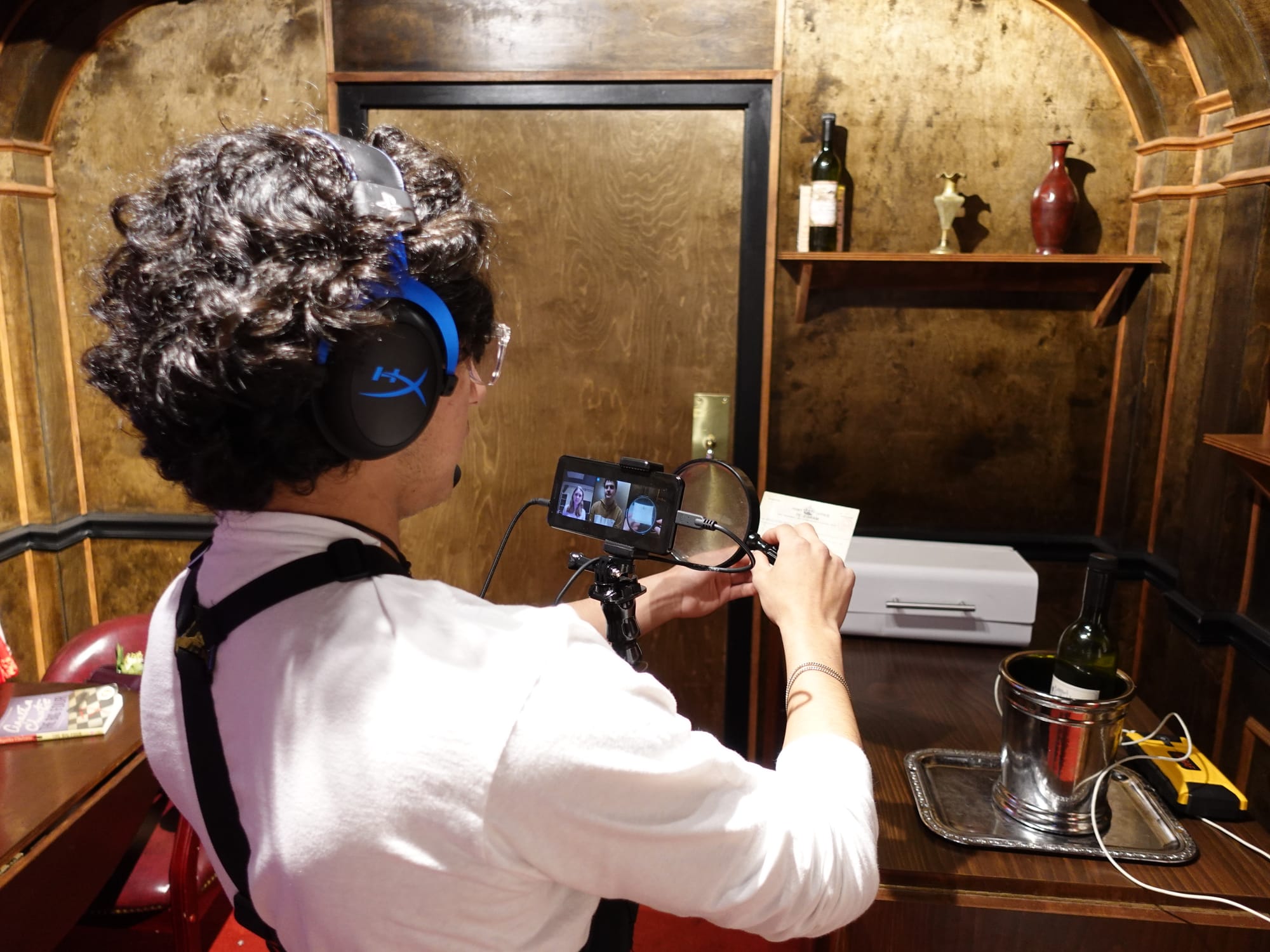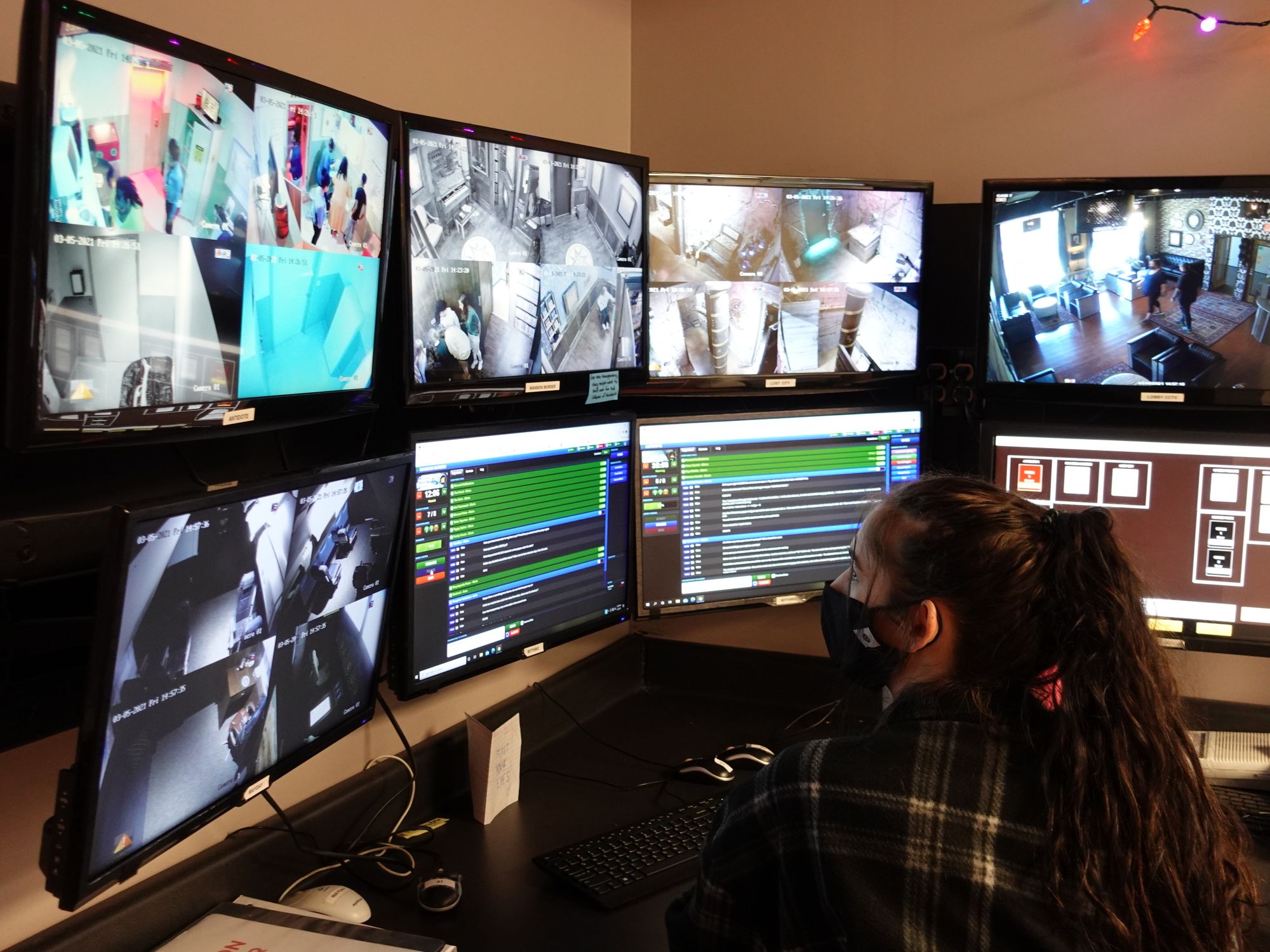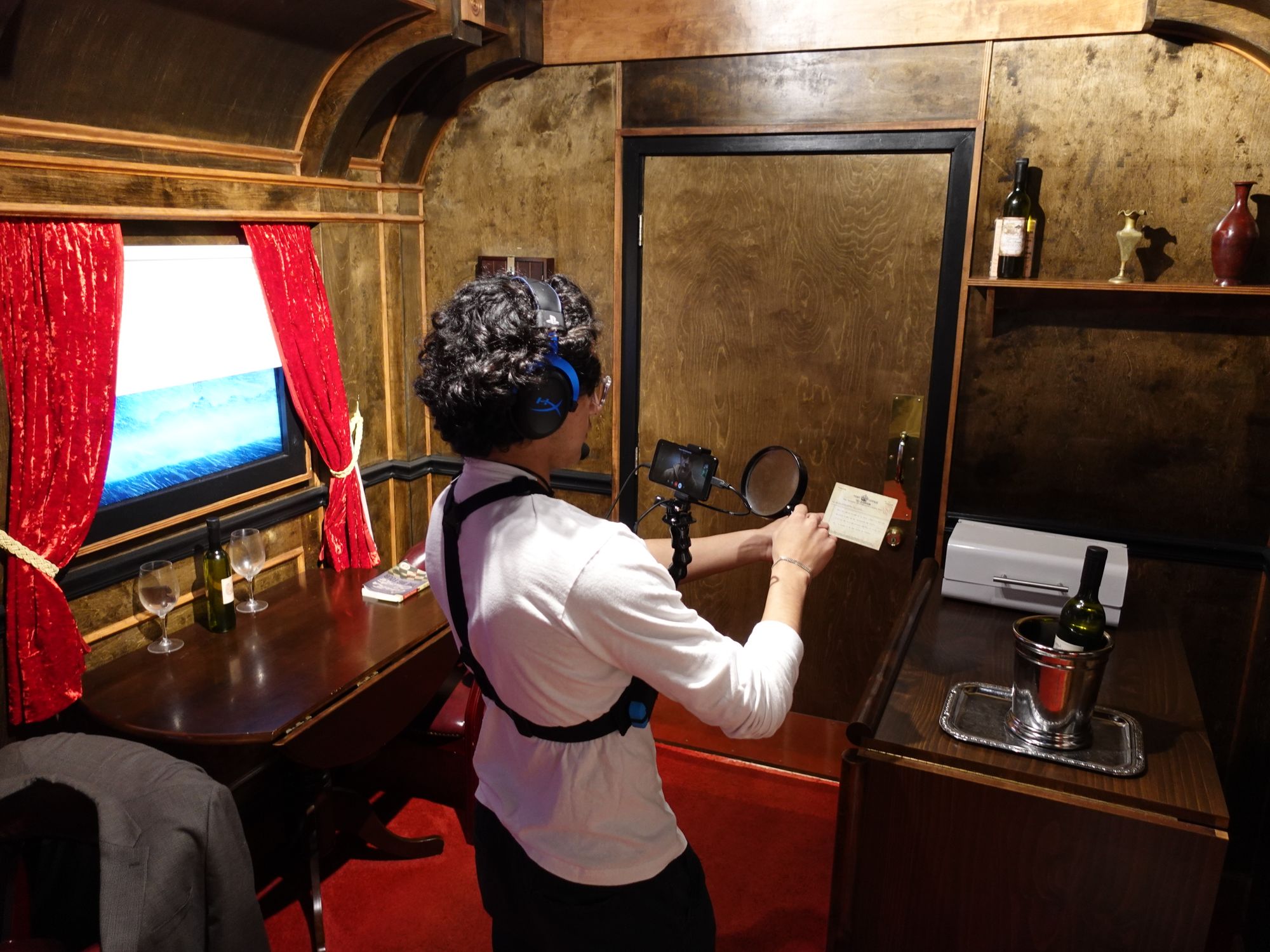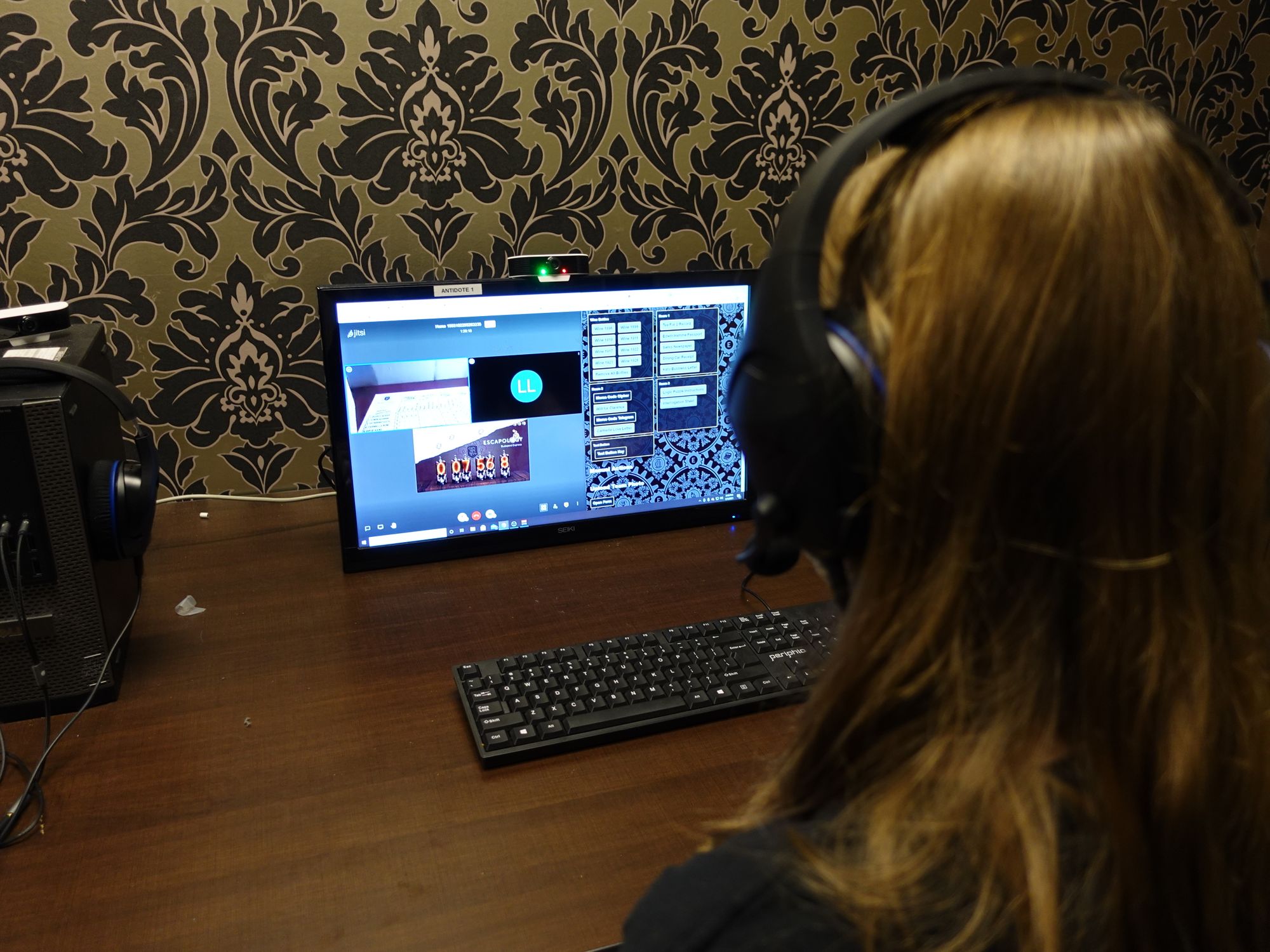Pandemic Pivot: Reinventing the Escape Room Experience
Krumware sits down for a covid pivot conversation with Kevin Williams, owner of Escapology Columbia

Krumware sits down for a conversation with Kevin Williams, owner of Escapology Columbia, Cognizant Leader, and the entrepreneur behind technology that enables Escapology @Home. Escapology Columbia is a premier entertainment, special event, and team-building venue that was impacted significantly by COVID-19. Kevin’s journey started with an idea to help his small business adapt, survive, and thrive during the global pandemic. That idea evolved into a web application used by customers worldwide — including the United States, Europe, and Australia — to experience live, online interactive escape games from a single seamless interface. In this discussion, Kevin shares the story behind the tech's development, challenges, successes, and more.

Here's the full interview:
Q: Tell us a little about your business.
A: Escapology Columbia is an entertainment venue. Groups have 60 minutes to solve various types of challenges and “escape” the room. You may be solving a murder, repairing a submarine, or recovering a stolen piece of art. Historically it has been an in-person activity, but everything changed with the pandemic.
Q: What problem were you trying to solve for your business?
A: Because of the pandemic, people no longer felt safe being in close proximity with others. Our business dropped 82% in one week. March 2020 was a very dark time. We were shut down for 7 weeks. We had a problem: our business model was based on hosting events at a physical venue with a custom-created experience that was entirely in-person. We had to come up with a way to provide team-building virtually, and it had to be more than just a Zoom call. So, we had to get creative. We built a dashboard that had audio and video conferencing capability built in, and then added options for asynchronous and collaborative team building to make it more interactive and fun. We wanted to create an option for guests to engage online, even when it was not feasible to meet in person.
Q: How has creating this impacted your business?
A: The impact has been significant. Half of Escapology Columbia’s revenue in December 2020 came from the online experience delivered using this web based application. The response from our customers has been very positive. We’ve hosted hundreds — close to a thousand — virtual games. We’ve expanded our reach from serving mostly local customers to now doing business with companies from all over the world. We’ve hosted virtual escape room games for Fortune 100 companies that were looking for online team-building events that can span the globe. We’ve had companies with distributed groups participate from Australia, Europe, United States, South America, and Canada.
Q: How did you come up with the idea for the Escapology web application?
A: There are other companies that pivoted their escape rooms from in-person to online, but most were just using Zoom, or Zoom with a third-party application that required multiple windows. It was clunky. Escapology is known for providing a higher-level, premium service, and we needed a single, seamless application to deliver on that expectation. My team and I tested 10 different online escape rooms and discovered what we didn’t like, and then created what we wanted to experience and our guests would enjoy. We wanted something so easy to use that everyone could play.

Q: Did you create the app yourself or outsource? Why?
A: We did some early prototyping in-house. I had domain knowledge from working in the software industry for most of my career. My sons are technical and they helped out too. With our background, we could provide an early demo of what we were trying to create. However, we quickly realized that although the prototype we created worked, it was not at the level of quality or robust enough for our customers. That’s when I reached out to Colin Griffin and his team at Krumware.
Q: What sort of challenges did you face when building the web application?
A: I have a background in software development and I’ve led teams that built web apps. We had developed a proof of concept solution in-house, and we knew we were on the right track. But then development slowed down because we didn’t have the technical knowledge to implement functionality that would create a quality customer experience. We soon realized what we put together on our own wouldn’t work long-term or scale. I started to see the bill from AWS (Amazon Web Services), who was hosting our application, and I realized the design choices we were making could become very expensive, very quickly. We needed help not just writing some code, but developing a solution where the overall cost still allowed the business case to make sense.
Early on, our roadmap was created and shaped by the limitations we had by doing things in-house. When we partnered with Krumware, that changed. Now we can articulate what we want to achieve, and lean on them to solve the issue. I could say: “This is what my business needs,” and they would show us how to get there.
Q: How did you launch and market your application?
A: We are one of about 60 Escapology locations around the world. The remote games are offered worldwide, so the corporate team at Escapology has been a huge part of the success. They had been thinking about ways to help their franchises respond to the pandemic. They were using a Zoom option on a limited scale when I approached them with our web-based solution. What we had developed had some advantages over what was available in the market. They were excited enough about the enhanced capabilities, quality, and end-user experience that they adopted it as the standard and we expanded our game offerings as well.
Now that it has launched, anyone who books an online Escapology game from any of the franchises worldwide, or from the Escapology @home website will use our web application as the enabling technology. Although the game is mastered from a control room in Columbia, S.C., the live actors may be in places like Las Vegas, New Jersey, Texas, or Orlando.
Q: Creating something from scratch requires making hard decisions. As a business owner, what decisions were particularly difficult to make?
A: It’s not easy to invest money when you’re losing money. You need discipline, foresight, and a plan. You need to have confidence in your idea and take the long view. You also need to know when it’s time to get serious and bring in people who can make an impact quickly. When we pulled in Krumware, the hurdles we had been facing were overcome very quickly. We had a solution we could go live with in just a few weeks.
Q: How do you measure success?
A: The customer experience is what matters most to us. This solution gives us a long-term strategic advantage, and the potential to change how games are experienced. The web version is now a core part of our business. Escape rooms are evolving and you have to keep up. The solution we use today is not static. We just did an update last week to make the administrative side of things easier, and we are adding a new type of online puzzle next week.
Q: How do you plan on evolving and growing the user base?
A: We want to offer different challenges and puzzles, and provide more interactivity between the live, in-room player and the remote player. We’ve just tapped the surface for what is possible.
Q: During development, what would you have done differently?
A: I would have brought in outside help earlier. I took too long to commit to doing it right and getting the help we needed. External partners bring ideas and can quickly solve problems based on the ecosystem of other companies they already work with. They can leverage their expertise and see all sides of a problem. We were stuck, then very quickly got unstuck, because Krumware brought an outside perspective and the technical skills to deliver a solution that worked.
Q: The solution was developed to fulfill a need. How has it changed how you conduct business?
A: It has transformed our entire business. There’s the entertainment aspect: we now use actors, so the experience is more about the character and is geared toward making people laugh and have fun. That has changed how we hire - we now look for people with a performance background because they’re “on stage” the entire time, and have to be outgoing. The gamemaster had to learn how to use a PC and become a streamer; so now the role of gamemaster is more technical.

Having a partner like Krumware that solves the technology piece allows me to focus on customer experience and the entertainment aspects of my business.
Q: What role did technology play in your business before the pandemic? How has that changed in the past 12 months?
A: The pandemic didn’t create a trend; it accelerated the need for and benefit of technology in our business. The first escape rooms in the market could be put together for a few thousand dollars. Now it’s closer to $50,000 per room because we incorporate DMX lighting, PLC controllers, music soundtracks, and elaborate set designs for an immersive experience. Everything is monitored by CCTV cameras and audio to and from the rooms. People are often surprised to see how much technology is involved in a modern in-person escape room.
Now that the pandemic has shifted games to also be online, we are using streaming services, building virtual room tours, digitizing room assets, and using software like OBS to provide smooth experiences for the end user. Our solution is hosted on AWS. Players use Google Chrome to access the features, which are advanced web libraries and frameworks that provide real time synchronization and updates during the game. In the rooms we have an employee acting as a character for the game. They use a chest harness, phone, and headphones to communicate with the remote players. It’s a completely new layer of technology on top of what already existed. We still have to have the technology to deliver the immersive escape room experience, and now we also have to have the technology to deliver that experience virtually.
Some escape room companies were struggling to truly embrace all of the in-person technology requirements. Now that this second technology hurdle exists, they risk falling even further behind. And that is true in any business. Technology and customer expectations change and you have to keep up.
We opened in 2018 and we expect 2021 to be our best year yet in terms of revenue and profit. The customer mix will be different. We still don’t have the big in-person events and corporate groups we saw in 2019 even talking about coming back right now, but since we have shifted what we offer we have a path forward regardless. When they do come back, that’s even better for our business.
Q: What advice would you give to small businesses that are considering how to leverage technology in their business?
A: I’ve been involved with technology for 20+ years, and things change very fast. There are tools available now that are faster and easier to implement than you may think. I am not saying you can do things on a shoestring. You have to invest to see a return, but with the right partner, you can achieve things more quickly and the impact can be huge. The team at Krumware was able to leverage technology to transform our business, and I could not be more pleased with the result.
Book your own digital escape room experience today at Escapology @Home!
Interested in using technology to transform the way you do business? Contact us today - we'd love to help!

